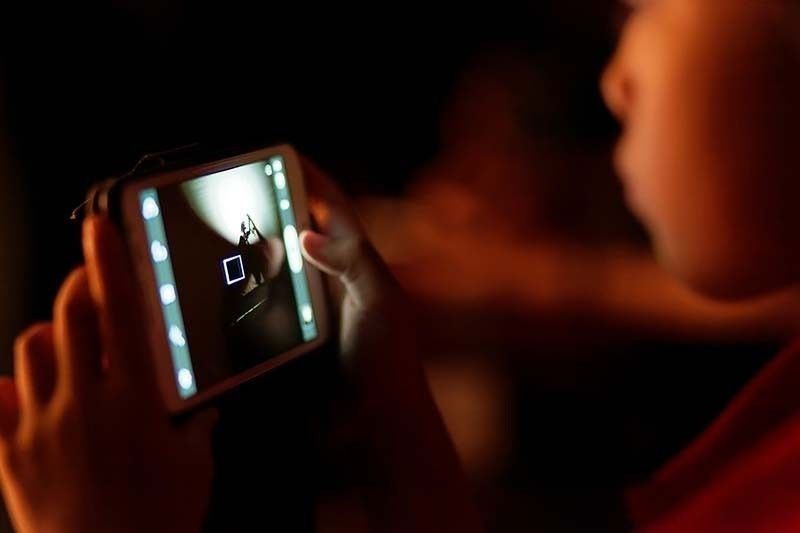Marcos wants online child sex abuse stopped

MANILA, Philippines — President Marcos wants the elimination of online sexual abuse and exploitation of children to be his legacy as he regards the crime, whose youngest victim in the country is a three-month-old infant, as “unFilipino,” the Department of Justice (DOJ) said yesterday.
DOJ Assistant Secretary Jose Dominic Clavano IV said Marcos was “visibly distressed, very bothered and clearly stressed” when presented with information about online sexual abuse and exploitation of children and the materials used to commit them during a meeting last Wednesday in Malacañang.
The “alarming” figures prompted Marcos to issue a “very strong” directive to the DOJ, the Philippine National Police (PNP) and other law enforcement agencies to further intensify the efforts against the unlawful activities.
“When we gave him (Marcos) the operational details of the crime, he really said, ‘I will leave behind many legacies in the Philippines but if I have to choose just one legacy... after this administration, this would be it,’” Clavano said.
“We hope by the end of his term, we will completely phase out this crime because, as he said, it is very unFilipino-like to do this. So let’s go back to our real culture, which is family. But when it comes to crime like this, you are using your child to rake in small sums. That is disturbing,” he added.
Clavano described online sexual abuse and exploitation of children as a “family-based crime,” with biological parents facilitating the abuse of 41 percent of the victims and other relatives doing the same for another 42 percent of the children.
“His directive is to further intensify these efforts, to further look into how we can come up with a holistic solution. Because this cannot only be done by whole-of-government approach, but (by) whole-of-nation approach, which includes the private sector, the social media platforms where these crimes usually occur,” he added.
Marcos, Clavano said, has also instructed the DOJ to intensify talks with Facebook and to remind the social media giant of its obligations under the law.
A study conducted in 2022 by the United Nations Children’s Fund, ECPAT International and Interpol indicated that 20 percent of internet-using Filipino children aged 12 to 17 or two million children were victimized by online sexual abuse and exploitation.
About 23 to 38 percent of the children who are victims do not tell anyone about the harm being done to them.
The crime has been tied to poverty, unsupervised access to the internet and online payment channels, the capability to speak English and beliefs that children are not harmed if the activities only involve the use of web cameras.
Clavano admitted that there are difficulties in quelling the crime since it is done within the homes of the victims. He added that 74 percent of the cases were perpetrated by those that fall within the victim’s circle of trust, including parents and close relatives.
Easy targets
Children from poor families are easy targets of online sexual abuse because the crime is a financially lucrative activity, according to DOJ executive director Margarita Magsaysay.
She revealed that some victims are ready to show their nude pictures for as low as P200 or P300 and that the crime is rampant in Cagayan de Oro, Iligan and Taguig.
According to Clavano, the average age of online sexual abuse and exploitation at the time of referral or rescue was 11 years old, with less than one year old being the youngest.
Victims of the crime were predominantly female at 86 percent. The countries with the most number of patrons are US, Sweden and Germany.
“Well, usually they (patrons) are older men, from English-speaking and more developed and Western countries. But the customers, as noted here, are not necessarily even pedophiles. Meaning to say, they don’t have any overt acts in their own countries where they display pedophile tendencies. So, they just enjoy watching them on the internet, social media and other platforms,” Clavano said.
PNP Women and Children Protection Center chief BGen. Portia Manalad said local authorities are collaborating with foreign law enforcement agencies through the Philippine Internet Crimes Against Children.
“Together, they refer cases when they find on the devices, in other countries, when they arrest criminals who have on their devices (child sexual abuse and exploitation materials), and then refer to us if there are Asian-looking or Filipino children and we do the rescue and arrest of facilitators,” she said.
Manalad added that law enforcers are training to use a tool being developed overseas to identify child exploitation materials generated by artificial intelligence.
Despite efforts by the government to assist and reintegrate children and families affected by the crime, there have been instances where the former victims become facilitators of the illegal activity.
Clavano said there have been 523 convictions against perpetrators of the crime since 2009. After the anti-online sexual abuse or exploitation of children law was passed in 2022, almost 200 convictions were made.
- Latest
- Trending




























